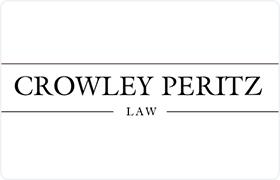Centreville Juvenile Law Lawyer, Virginia
Sponsored Law Firm
-
 x
x

Click For More Info:
-
Crowley Peritz Law
10560 Main Street Suite 501 Fairfax, VA 22030» view mapCriminal Defense Law Over 20 Years Of Combined Experience
Our lawyers are experts in a variety of misdemeanor and felony crimes. We understand that choosing the best criminal lawyer for your case is not a simple task.
800-916-2741
Arthur Von Keller
Other, Family Law, Divorce & Family Law, Juvenile Law
Status: In Good Standing Licensed: 54 Years
Deborah Leigh McIntyre-Yurkovich
Public Schools, Family Law, Juvenile Law, Criminal
Status: In Good Standing
 Matthew Crowley Fairfax, VA
Matthew Crowley Fairfax, VA Practice AreasExpertise
Practice AreasExpertise
